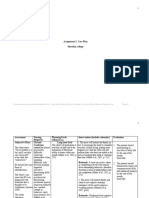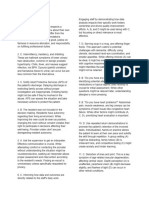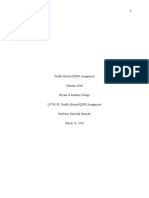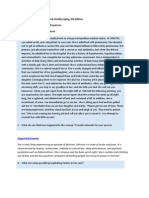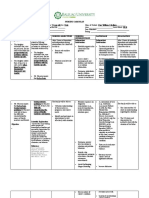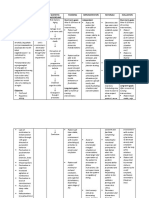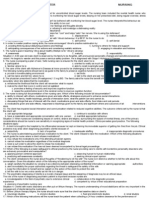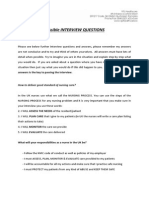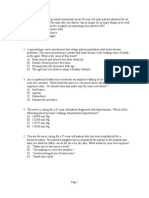0% found this document useful (0 votes)
18 views1 pageElderly Care: Addressing Health Changes
Mrs. Elena Cruz, an 84-year-old resident with a history of hypertension, osteoarthritis, and mild dementia, has shown increased forgetfulness, confusion, and reluctance to eat or participate in activities. She appears slightly dehydrated and has difficulty sleeping, with vital signs indicating mild fever and elevated blood pressure. The case study prompts critical thinking about immediate nursing concerns, interventions, patient involvement in care, potential underlying issues, and communication with the healthcare team.
Uploaded by
ryanjayolayvar21Copyright
© © All Rights Reserved
We take content rights seriously. If you suspect this is your content, claim it here.
Available Formats
Download as DOCX, PDF, TXT or read online on Scribd
0% found this document useful (0 votes)
18 views1 pageElderly Care: Addressing Health Changes
Mrs. Elena Cruz, an 84-year-old resident with a history of hypertension, osteoarthritis, and mild dementia, has shown increased forgetfulness, confusion, and reluctance to eat or participate in activities. She appears slightly dehydrated and has difficulty sleeping, with vital signs indicating mild fever and elevated blood pressure. The case study prompts critical thinking about immediate nursing concerns, interventions, patient involvement in care, potential underlying issues, and communication with the healthcare team.
Uploaded by
ryanjayolayvar21Copyright
© © All Rights Reserved
We take content rights seriously. If you suspect this is your content, claim it here.
Available Formats
Download as DOCX, PDF, TXT or read online on Scribd
/ 1









